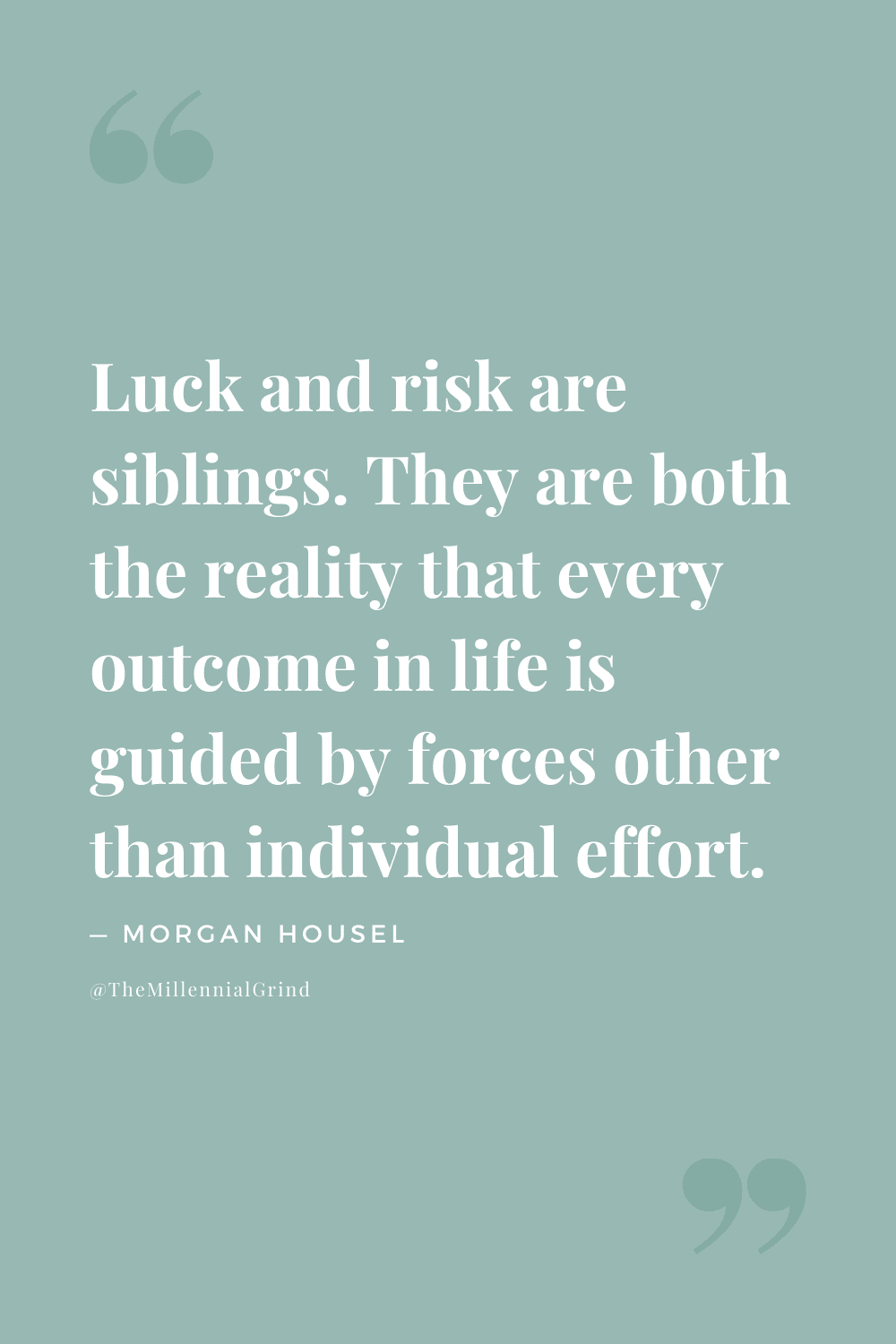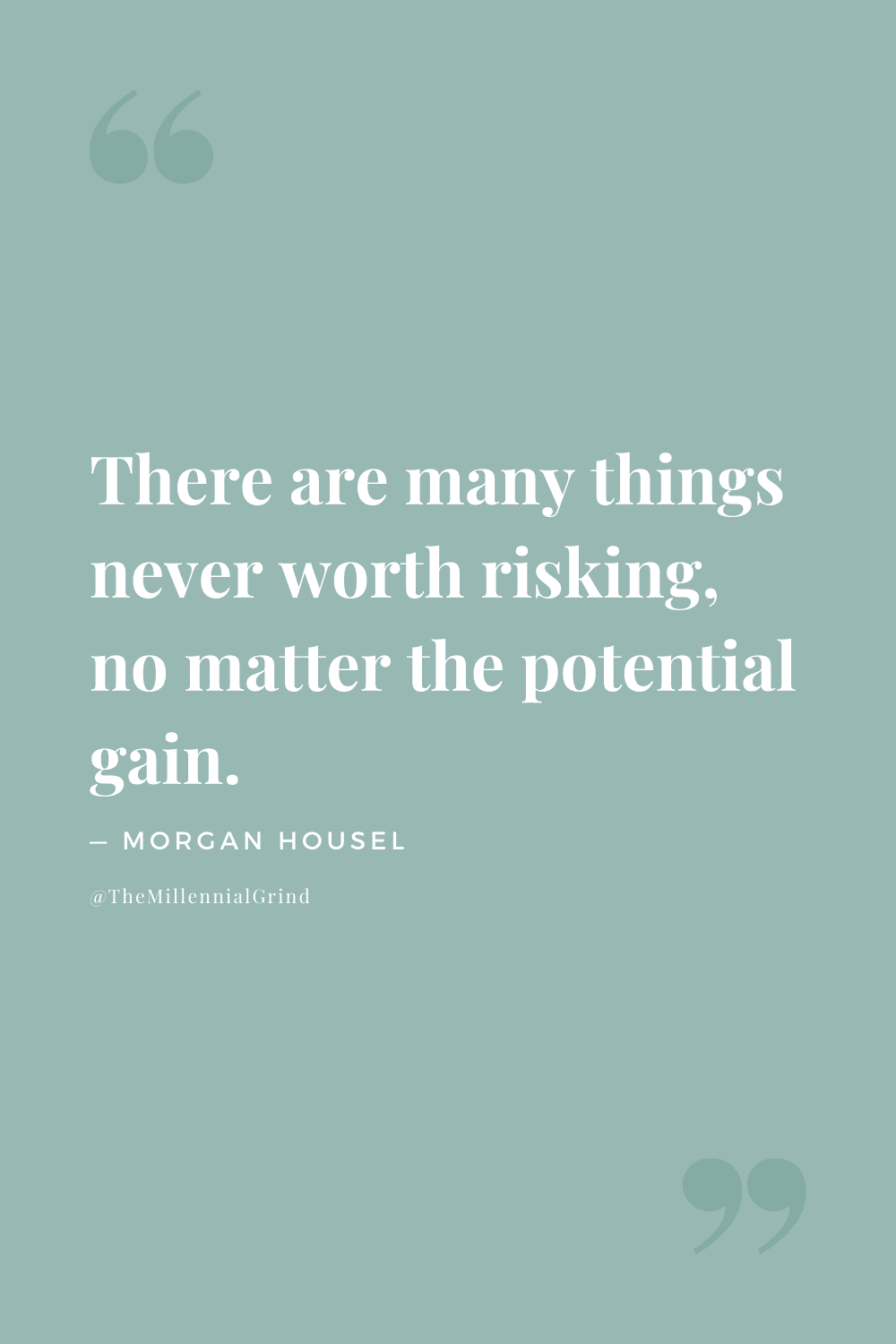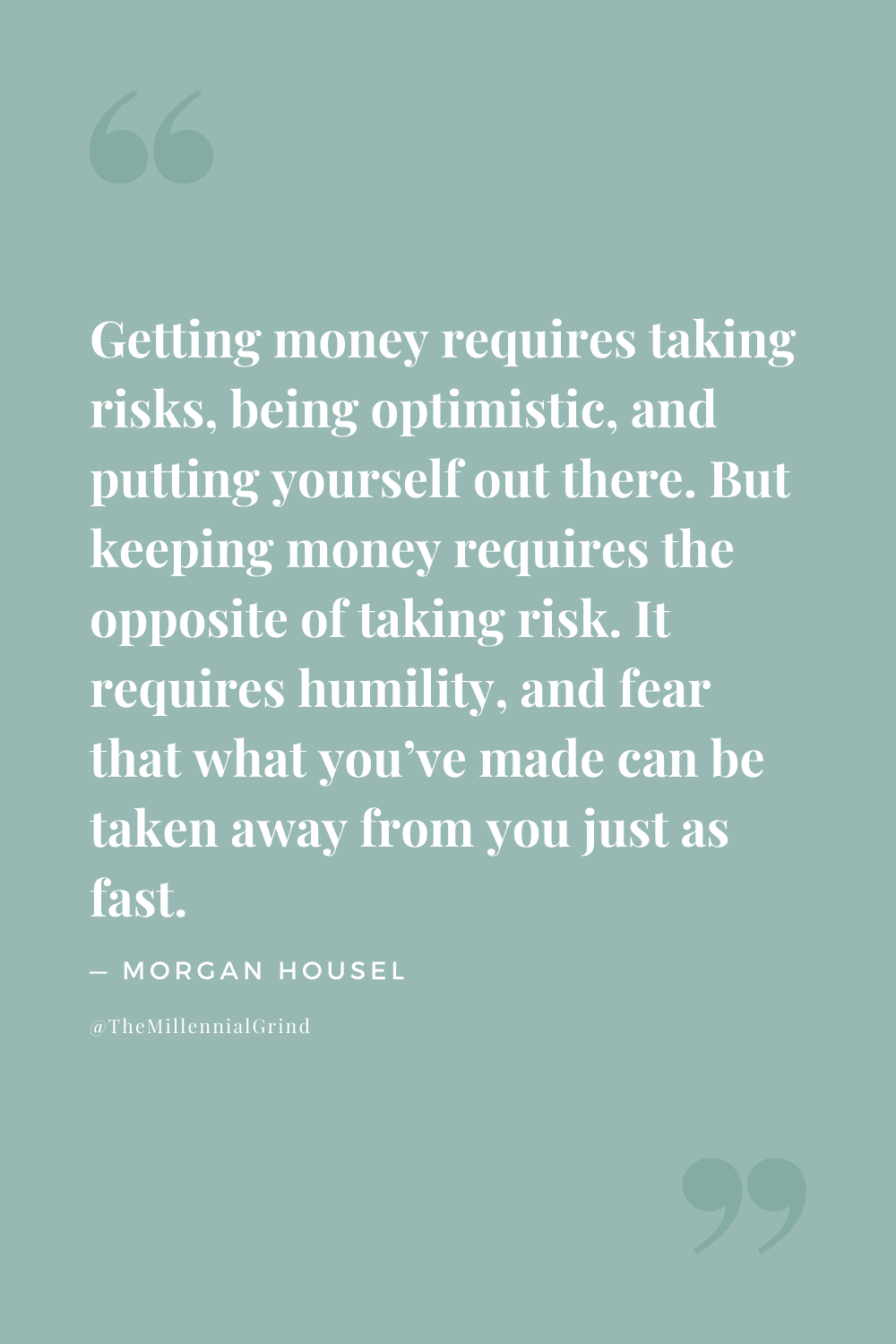The Psychology of Money by Morgan Housel shares 19 short stories exploring the strange ways people think about money and teaches you how to make better sense of one of life’s most important topics.
Money―investing, personal finance, and business decisions―is typically taught as a math-based field, where data and formulas tell us exactly what to do.
But in the real world, people don’t make financial decisions on a spreadsheet. They make them at the dinner table, or in a meeting room, where personal history, your own unique view of the world, ego, pride, marketing, and odd incentives are scrambled together.
Doing well with money isn’t necessarily about what you know. It’s about how you behave. And behavior is hard to teach, even to really smart people.
Scroll down and read 30 quotes from The Psychology of Money by Morgan Housel.
Get The Book: The Psychology of Money by Morgan Housel available now on Amazon.
30 Best Quotes from The Psychology of Money by Morgan Housel
-
Doing well with money has a little to do with how smart you are and a lot to do with how you behave.

-
A genius who loses control of their emotions can be a financial disaster. The opposite is also true. Ordinary folks with no financial education can be wealthy if they have a handful of behavioral skills that have nothing to do with formal measures of intelligence.
-
Money is everywhere, it affects all of us, and confuses most of us.
-
To grasp why people bury themselves in debt you don’t need to study interest rates; you need to study the history of greed, insecurity, and optimism.
-
I love Voltaire’s observation that “History never repeats itself; man always does.” It applies so well to how we behave with money.

-
People do some crazy things with money. But no one is crazy.
-
Your personal experiences with money make up maybe 0.00000001% of what’s happened in the world, but maybe 80% of how you think the world works.
-
We all think we know how the world works. But we’ve all only experienced a tiny sliver of it.
-
We all do crazy stuff with money, because we’re all relatively new to this game and what looks crazy to you might make sense to me. But no one is crazy—we all make decisions based on our own unique experiences that seem to make sense to us in a given moment.
-
Luck and risk are siblings. They are both the reality that every outcome in life is guided by forces other than individual effort.

-
If you give luck and risk their proper respect, you realize that when judging people’s financial success—both your own and others’—it’s never as good or as bad as it seems.
-
When things are going extremely well, realize it’s not as good as you think. You are not invincible, and if you acknowledge that luck brought you success then you have to believe in luck’s cousin, risk, which can turn your story around just as quickly.
-
The trick when dealing with failure is arranging your financial life in a way that a bad investment here and a missed financial goal there won’t wipe you out so you can keep playing until the odds fall in your favor.
-
There is no reason to risk what you have and need for what you don’t have and don’t need.
-
There are many things never worth risking, no matter the potential gain.

-
Good investing isn’t necessarily about earning the highest returns, because the highest returns tend to be one-off hits that can’t be repeated. It’s about earning pretty good returns that you can stick with and which can be repeated for the longest period of time. That’s when compounding runs wild.
-
Good investing is not necessarily about making good decisions. It’s about consistently not screwing up.
-
There are a million ways to get wealthy, and plenty of books on how to do so. But there’s only one way to stay wealthy: some combination of frugality and paranoia.
-
Getting money is one thing. Keeping it is another.
-
Getting money requires taking risks, being optimistic, and putting yourself out there. But keeping money requires the opposite of taking risk. It requires humility, and fear that what you’ve made can be taken away from you just as fast.

-
Planning is important, but the most important part of every plan is to plan on the plan not going according to plan.
-
You can be wrong half the time and still make a fortune.
-
Controlling your time is the highest dividend money pays.
-
The highest form of wealth is the ability to wake up every morning and say, “I can do whatever I want today.”
-
The ability to do what you want, when you want, with who you want, for as long as you want, is priceless. It is the highest dividend money pays.

-
No one is impressed with your possessions as much as you are.
-
Spending money to show people how much money you have is the fastest way to have less money.
-
Aiming to be mostly reasonable works better than trying to be coldly rational.
-
Beware taking financial cues from people playing a different game than you are.
-
Everything has a price, but not all prices appear on labels.

Which quote from The Psychology of Money by Morgan Housel is your favorite?
READ NEXT: How to Manifest Money In 5 Steps